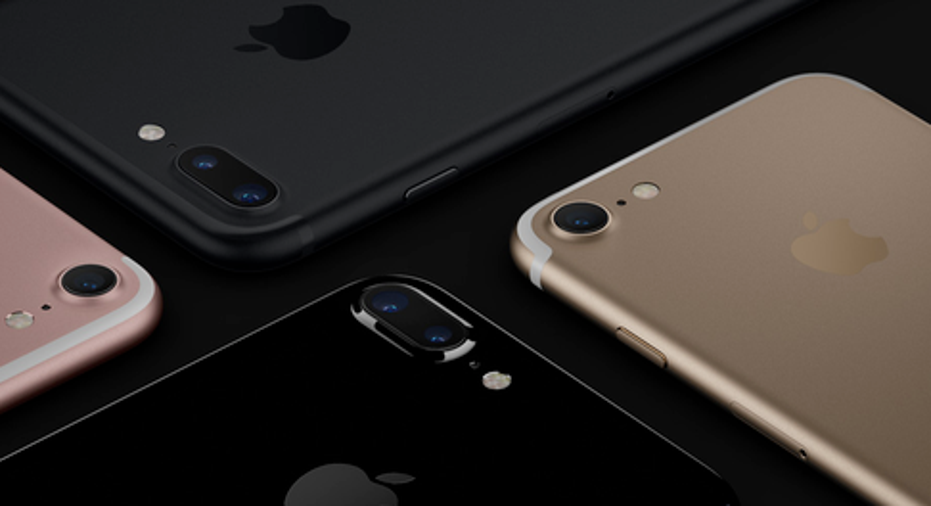Bad News for Apple: Plenty of People Think the iPhone 6s Is Good Enough

The iPhone 7 didn't have a killer feature (no headphone jack doesn't count). Image source: Apple.
It goes without saying that Apple's (NASDAQ: AAPL) singular goal with every year's iPhone upgrade cycle is to provide just enough new features to coax legions of its loyal fans into upgrading to the latest and greatest model -- ideally every single year. It's also clear that this has proven increasingly difficult, as smartphones these days are so good that it's hard to imagine the company releasing groundbreaking or revolutionary features anymore.
Unfortunately, that may also be true of the most recent iPhone 7. Even personally, 2016 was the first time in eight years that I didn't upgrade to the newest model.
Word on the Street
Barclays analyst Mark Moskowitz has just put out a research note (via Tech Trader Daily), downgrading shares from overweight to equal weight, which is the equivalent of dropping his rating from buy to hold. The analyst also reduced his price target by $2 to $117, which is notably slightly below current prices.
Investors have seen plenty of signs that the smartphone market has been weakening for a year or two, a trend that's not letting up anytime soon. Moskowitz's research suggests that many smartphone customers are increasingly picking 2015's iPhone 6s instead of 2016's iPhone 7, the former of which costs $100 less. Lacking any killer, must-have features, the new model simply doesn't justify the $100 premium in many consumers' minds.
That's largely why Moskowitz has reduced his average selling price (ASP) estimate from $650 to $648. That $2 difference may not sound like a lot, but keep in mind we're talking about roughly 220 million iPhone units that the analyst expects the company to sell in 2017. A $2 difference in ASP translates into $440 million less in revenue. For reference, Apple sold 211.9 million iPhones last fiscal year (which ended in September), generating $136.7 billion in revenue, which translates into an ASP of $645.
Smartphones are also seeing upgrade cycles elongate, as the product category matures and people are keeping their phones for longer and longer. Currently, most consumers keep their phones from two to three years on average, but this could stretch to three to four years, in Moskowitz's view. This same thing happened remarkably fast in tablets, which is partially why the iPad hit a speed bump a few years back that it has yet to recover from, but now it's happening in Apple's most important business.
Will 8 be great?
Whether or not Apple has some game-changing innovation up its sleeve for the iPhone 8 remains to be seen, but judging from the leaks we've seen thus far, the presumed "iPhone 8" is unlikely to have some type of revolutionary feature. Things like an OLED display, wireless charging, or edge-to-edge display are welcome improvements, but may not be able to spur the "super cycle" that many analysts are expecting.
Shareholders (myself included) should set their 2017 expectations to "meh."
10 stocks we like better than Apple When investing geniuses David and Tom Gardner have a stock tip, it can pay to listen. After all, the newsletter they have run for over a decade, Motley Fool Stock Advisor, has tripled the market.*
David and Tom just revealed what they believe are the 10 best stocks for investors to buy right now... and Apple wasn't one of them! That's right -- they think these 10 stocks are even better buys.
Click here to learn about these picks!
*Stock Advisor returns as of January 4, 2017
Evan Niu, CFA owns shares of Apple. The Motley Fool owns shares of and recommends Apple. The Motley Fool has the following options: long January 2018 $90 calls on Apple and short January 2018 $95 calls on Apple. The Motley Fool has a disclosure policy.



















